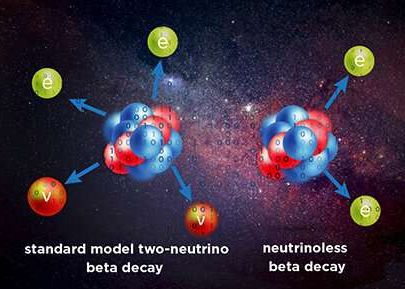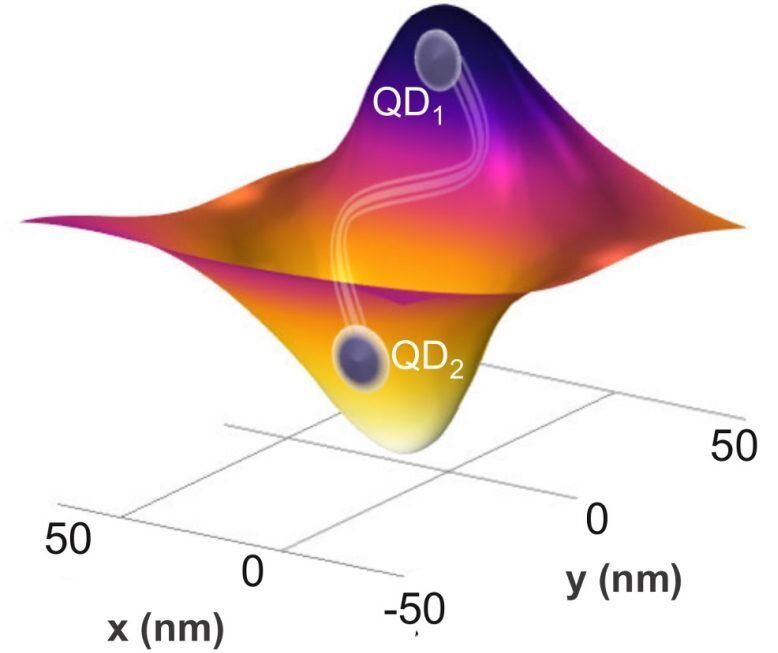
Researchers from the Facility for Rare Isotope Beams (FRIB) Laboratory at Michigan State University (MSU) have taken a major step toward a theoretical first-principles description of neutrinoless double-beta decay. Observing this yet-unconfirmed rare nuclear process would have important implications for particle physics and cosmology. Theoretical simulations are essential to planning and evaluating proposed experiments. The research team presented their results in an article recently published in Physical Review Letters.
FRIB theorists Jiangming Yao, research associate and the lead author of the study, Roland Wirth, research associate, and Heiko Hergert, assistant professor, are members of a topical collaboration on fundamental symmetries and neutrinoless double-beta decay. The U.S. Department of Energy Office of Science Office of Nuclear Physics is funding the topical collaboration. The theorists joined forces with fellow topical collaboration members from the University of North Carolina-Chapel Hill and external collaborators from the Universidad Autonoma de Madrid, Spain. Their work marks an important milestone toward a theoretical calculation of neutrinoless double-beta decay rates with fully controlled and quantified uncertainties.
The authors developed the In-Medium Generator-Coordinate Method (IM-GCM). It is a novel approach for modeling the interactions between nucleons that is capable of describing the complex structure of the candidate nuclei for this decay. The first application of IM-GCM to the computation of the neutrinoless double beta decay rate for the nucleus of calcium-48 sets the stage for explorations of the other candidates with controllable theoretical uncertainty.


















